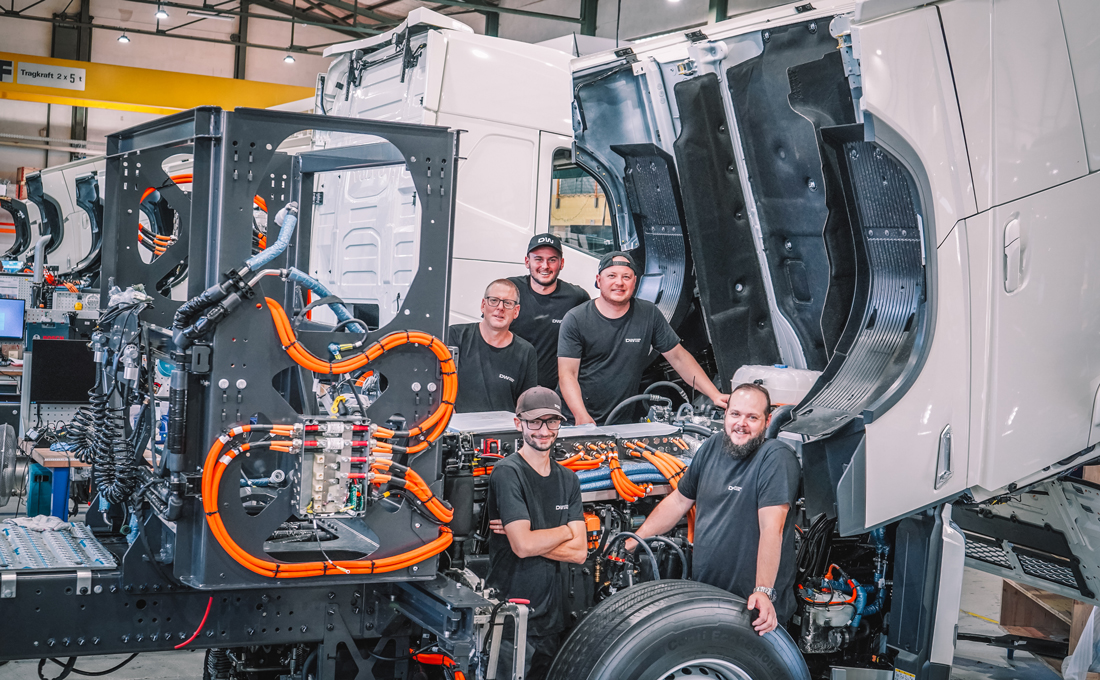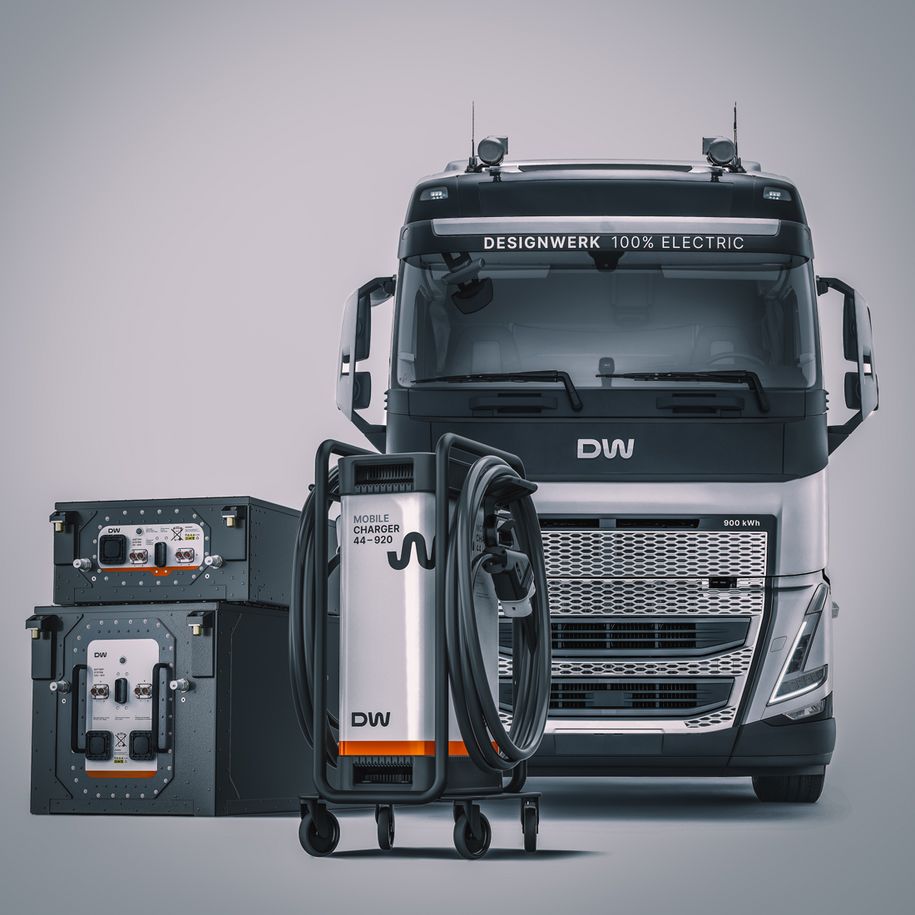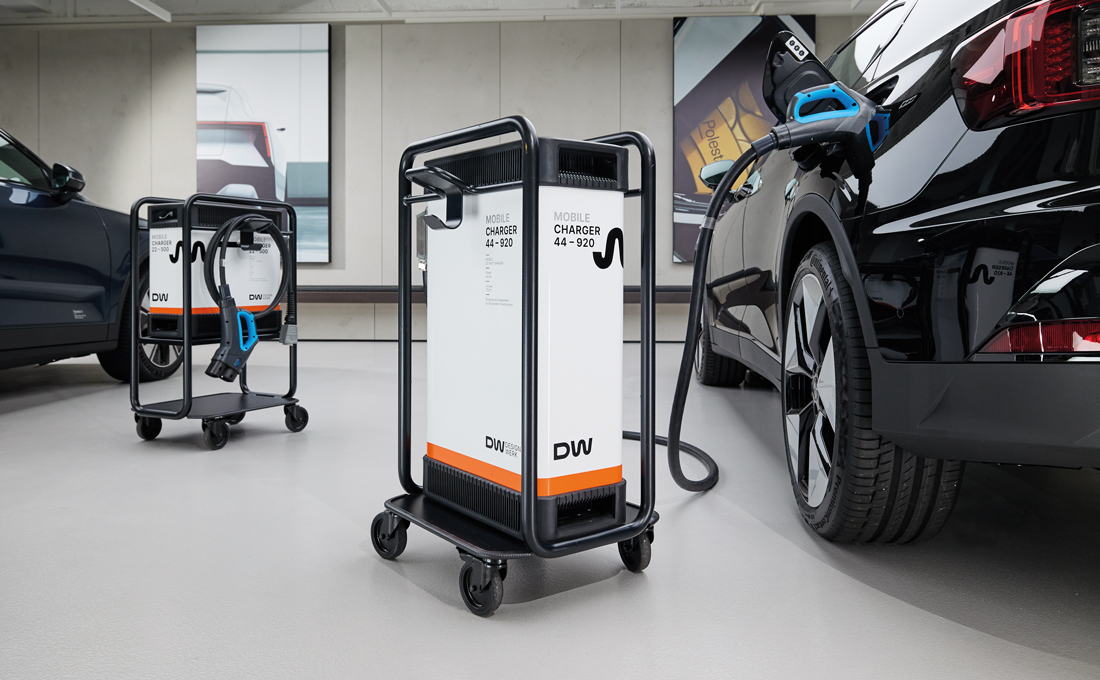Designwerk – Making trucks fit for the future of electromobility
Where it all began
André Heidelberger has been working for Designwerk for three years as Head of Department for e-truck production – a relatively short period of time, all things considered. "But in this period of time, a huge amount has happened," he says with a smile. Two years before Heidelberger took over as head of department, the Winterthur electromobility innovator began to devote itself to the field of "truck building". To this end, existing diesel-powered trucks are being converted to more sustainable e-trucks at great expense using components that have been developed in-house. Although the first steps were quite successful, Designwerk was initially only able to produce two e-trucks per year. "Today, we are able to produce ten trucks per month," says André Heidelberger.
About Designwerk
The founders' passion for electromobility was sparked during the 80-day, all-electric world record circumnavigation using the specially developed Zerotracer fully-enclosed motorcycle. Since it was founded in 2008, Designwerk has been driving the world of electromobility forward with innovative products and projects, aiming to spread the word of sustainable mobility. Today, the Winterthur-based company employs more than 200 people working together to develop and manufacture electric trucks, mobile and stationary quick chargers, and modular high-voltage battery systems for electric vehicles. Its portfolio of e-trucks includes the first all-electric waste collection truck to drive on Swiss roads and e-trucks with the largest battery capacities and ranges to date.
"Diesel is actually in my blood..."
For André Heidelberger, the topic of electromobility is extremely exciting. He originally started out on the other end of the spectrum entirely: "I was trained in the classic trade of truck mechanic and actually have diesel in my veins," he says. But due to his many years of work in the city of Winterthur, he regularly came into contact with electrically powered municipal vehicles and recognised their potential to be used in other areas of application and for other vehicle types.
Making the impossible possible
Today, André Heidelberger describes his work at Designwerk as his greatest passion. But his work was and is by no means simple. The specialist explains:
"For a long time there was this belief that an electric drive system for trucks would not work"
But together with his team, which today consists of four team leaders and 13 fitters, he was able to not just stabilise but also increase production of these vehicles. And producing ten vehicles a month is not the end goal. "We still have potential for more."
The process of each conversion runs like clockwork: When a company approaches Designwerk, the first step is the specify the vehicles, with the process coordinated by the project managers. Designwerk employs a 40-person engineering team who work with the mechanics on an equal footing. "We then get a blueprint that will guide us." We use Volvo vehicles of various types as the basis for the electric trucks. These are then dismantled by Heidelberger and his team and newly equipped with all the components necessary for electrical operation. And as Designwerk also manufactures its own batteries and chargers, this makes it possible to flexibly meet customer requirements. "The only sticking point has been the shortage of specialists. So anyone looking for an exciting and meaningful challenge in a technical field is welcome."
Tried-and-tested collaboration
When it comes to e-mobility, Heidelberger and his team regularly break new ground for Designwerk customers and develop innovative ideas and approaches. However, when it comes to the tools, it's not about experimenting at all. "Here we rely on the proven expertise of Brütsch/Rüegger Tools," emphasises the department head. We collaborate very closely and our consultant Jasmin Sacirovic is always on hand when this young and dynamic company quickly needs tools for new innovations.




